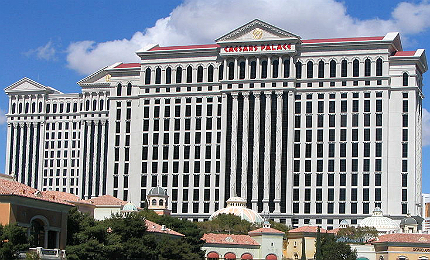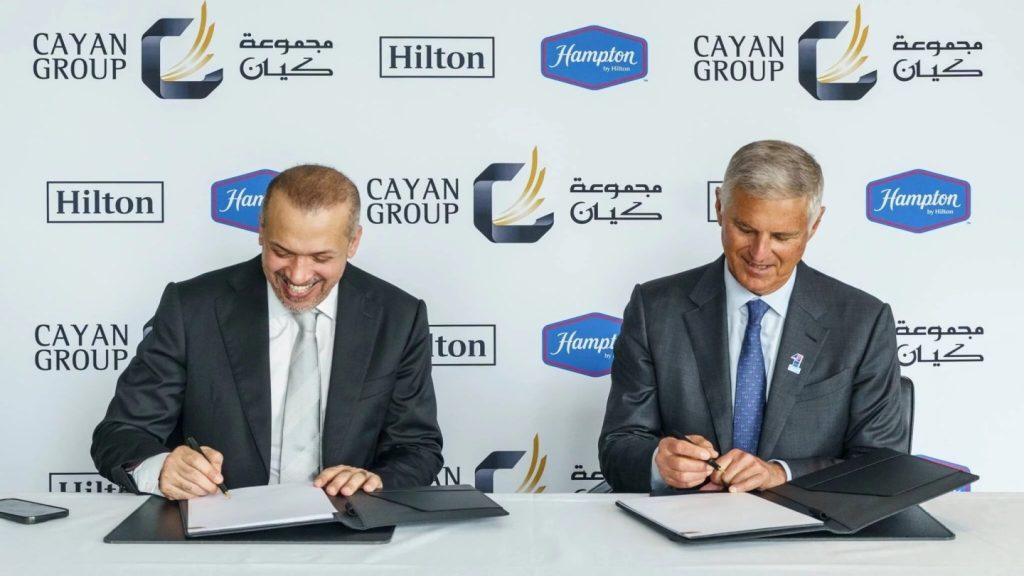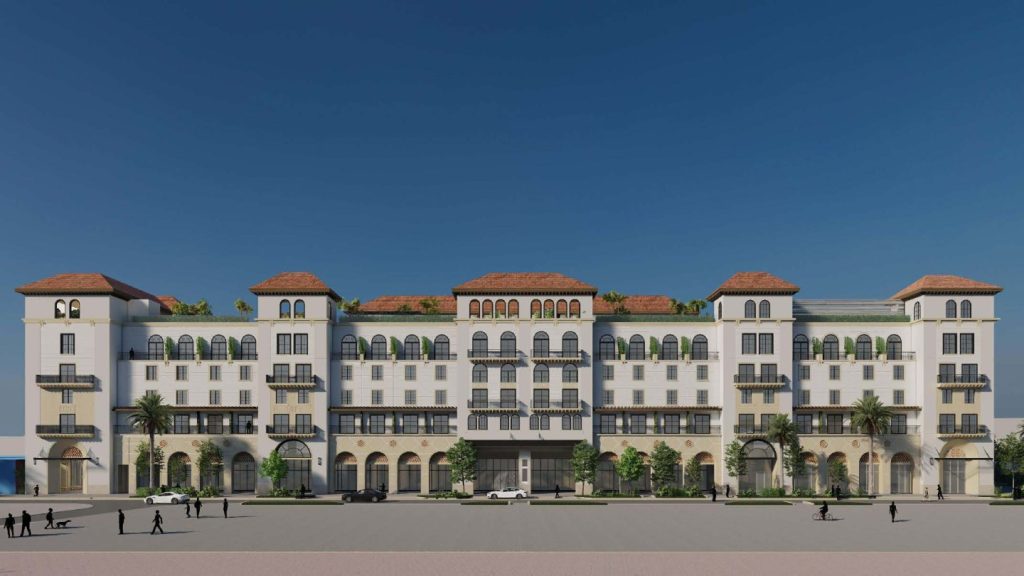

Over the last few years, brands have increasingly recognised the potential of creating their own signature hotel accommodation. The perfect market in which to sell a lifestyle, hotel guests – a lucrative and captive audience – are cocooned in total brand immersion.
Nobu Hospitality – the holding company for the eponymous Japanese ‘celebrity’ restaurant chain – joined the party last month, with the opening of its new $30m, 181-room hotel, right on the Las Vegas Strip. The hotel comes complete with a restaurant inspired by Chef Nobu Matsuhisa, who has collaborated with long-time business partner Robert De Niro and film producer Meir Teper on all 26 of the acclaimed Nobu restaurants.
The group’s first foray into the branded hotel arena will be followed by hotels in Riyadh, London, Bahrain and the Caribbean. So why the diversification? Nobu Hospitality Group chief executive Trevor Horwell says the epiphany came when the group saw the rise in popularity of hotels that boasted Nobu restaurants.
"We realised we were building other hotels’ brands, when what we should be doing is building our own," says Horwell. "Anybody who walks into a Nobu restaurant, we want to convert for ourselves."
See Also:
Nobu co-investor Meir Teper was initially approached by Caesars Palace president Gary Selesner to create a Nobu restaurant in the hotel. "I told them I have a better idea," said Meir. "Since we are now planning to do Nobu hotels, why don’t we do a Nobu hotel and restaurant at the same time?" This turned out to be an especially congruent move for both parties, as Caesars recently re-positioned itself as an upscale brand – co-branding with Nobu lends it increased visibility and credibility.
How well do you really know your competitors?
Access the most comprehensive Company Profiles on the market, powered by GlobalData. Save hours of research. Gain competitive edge.

Thank you!
Your download email will arrive shortly
Not ready to buy yet? Download a free sample
We are confident about the unique quality of our Company Profiles. However, we want you to make the most beneficial decision for your business, so we offer a free sample that you can download by submitting the below form
By GlobalDataJapanese influence: knowing the Nobu brand
David Rockwell, the project’s award-winning and very prolific lead designer, also created the first Nobu restaurant, so he knows the brand intimately. "We’ve had many years with Nobu and his partners to develop an idea of a hotel that uses very simple, very authentic ingredients – just like the food," he says.
Nobu Hotel has been fashioned out of Caesars once-ageing Centurion Tower – a boxy, non-descript 1970s block. But the interior has been gutted to make way for a whole new concept in Vegas hospitality.
"The spaces were very defined. It was what it was," says Rockwell. "We were intrigued by finding a way to take Nobu’s sense of informal luxury and take what are a series of relatively small spaces … and craft something that is about Nobu DNA."
Seeking to make the hotel a sophisticated and luxurious destination for ‘style-makers and trendsetters’, the theme follows a Western-Japanese fusion of natural materials and matching textures and patterns. All 181 rooms and suites – ranging from a one-bed at 1,000sq ft to a generous 3,500sq ft five-bedroom accommodation – are designed with maximum comfort and simplicity in mind; a sophisticated move away from the Strip’s more familiar bling.
As Matsuhisa says: "A hotel has to be comfortable. It’s all about the details. For me, a hotel has to be like my master bedroom."
So guests can expect generous standard rooms, with a lounge area boasting a coffee table and L-shaped sofa, complete with Japanese-style pillows. Rockwell’s colour palette is cool cream and brown, complementing the hand-painted calligraphy above the beds. Natural elements, including teak, oak, fir and hemlock, create an earthy ambiance, combining with artwork from up-and-coming Japanese artists.
It’s a Zen vibe – calming, sophisticated and peaceful. Even the carpet has rake-like texturing to create the effect of a sandy garden.
"What we mostly did is take the notion of simple patterns and natural landscapes," says Rockwell. "[It is] very simple but hopefully an oasis of Japanese warmth."
Indeed, customary hot tea and rice cookies from Matsuhisa’s hometown of Saitama are delivered to guests after check-in.
Vegas isn’t exactly known for its designer hotels, so Nobu at Caesars could possibly start a trend in the gambling mecca.
The trendsetters: Bulgari and Armani open brand hotels
Bulgari’s foray into the hotel industry in 2004 in Milan came about through a collaboration with Marriott’s luxury division. The group has since added to its portfolio, with properties in Tokyo, Bali and now London.
Bulgari Hotels and Resorts executive vice president Silvio Ursini sums up the strategy: "Hotels are a great way to showcase the design identity of a brand, and to project a lifestyle that goes beyond products." Guests can peruse a Bulgari catalogue in each room, and room counts are strictly limited to ensure exclusivity.
Jason Harding, regional general manager at Armani Hotel Dubai, agrees: "A hotel is an entity that goes beyond the confines of fashion. It’s something that will endure over time."
Indeed, Armani leapt into bed with Emirates-based Emaar Properties to open its flagship hotel in Burj Khalifa, Dubai, in 2010. Eleven stories of the world’s tallest building embody the Armani lifestyle – cool, chic and exuding a warm sophistication. The Burj’s Y-shaped floor plan means that each room is a unique space. Curved wall spaces are lined with luxuriant fabrics and leather, with antique bronze and two-tone silver metal coatings a continuing theme throughout the hotel.
"The result is a property that feels bespoke – from the Eramosa stone floors, zebra wood panelling and fabric covered walls, to the scents of the bath and spa accessories. The hotel truly brings to life Giorgio Armani’s dream," says Marc Dardenne, Emaar’s CEO.
French enfant terrible Philippe Starck created somewhat eccentric designs for his Mama Shelter boutique hotels. The brand’s latest outpost in Marseille has 127 rooms on six floors, with a massive dining area where guests are encouraged to mingle at long sharing tables. Backed by Club Med moguls the Trigano family, Mama Shelter’s ambition for the first hotel in Paris back in 2008 was to "create not only a place to spend the night, but to establish a modern kibbutz, a laic monastery, a place where friends can gather around the table to share a meal prepared by our chef."
Of course, Versace was the luxury brand that really began the trend of hospitality back in 2000, creating the sumptuous Palazzo Versace on Australia’s Gold Coast. Marbles, mosaics and vaulted ceilings hark back to a golden era of sublime Italian craftsmanship. Construction is still ongoing for the Palazzo Dubai – a Versailles-like edifice that is breathtaking, even for Dubai, which is no stranger to excess.
The rise and rise of the luxury brand hotel shows no sign of abating – there’s no recession for the super rich. Whether you’re a guest at one of these luxury boutique hotels, or remodelling your apartment, designer David Rockwell has some apposite advice: "Design is about expressing yourself. Embrace your own idiosyncrasies, what you’re passionate about. Don’t be afraid to take risks."
Related content
Global vs local: authenticity and hotel design
International hotel brands are increasingly keen to create distinctive interiors that channel local influences.
In pursuit of Platinum: green building with LEED
With 14,000 certified projects, the US Green Building Council’s LEED rating system has become a global brand for the eco-friendly design-build market.






